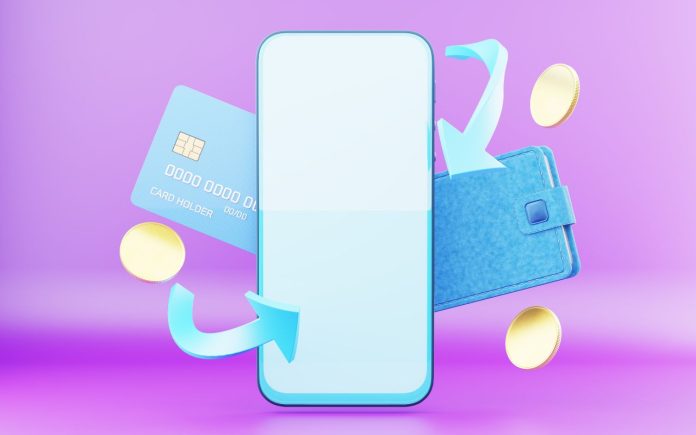Looking for a payment solution for your business that does not involve creating a website? Your search ends here. India accounts for 46% of all digital payments in the world, and with the growing cashless economy, it is bound to increase.
One way to set up a digital transaction method for your business is by using payment links. These links offer businesses a versatile and streamlined method for requesting and receiving customer payments. Without the need for any heavy code, this no-code solution is completely hassle-free and incredibly efficient.
Payment links are the one-stop solution for all your transactions. Let’s dig deeper into the advantages payment links can have for invoice management.
What are Payment Links?
UPI transactions now account for 80% of all digital payments in India. Payment links are unique URLs that businesses can generate and share with their customers to process payments. These links can be sent via various channels, such as email, SMS, WhatsApp, Instagram, or even embedded in websites and invoices. When a customer clicks on the payment link, they are sent to a secure payment page where they can easily complete the transaction using their preferred payment method.
Key Advantages of Payment Links
Payment links have become the new one-stop solution for many businesses due to their versatility and ease of use. They have many advantages for a business. Let’s explore a few of them:
- Customisation and Branding
Businesses can tailor payment links to include relevant information such as the invoice number, customer name, and payment amount. Companies can also add their logos and branding elements to the payment pages, which helps in conveying trust and transparency.
This level of personalisation enhances the professional appearance of the business and builds customer loyalty by providing a consistent and recognisable payment experience.
1. Enhanced Customer Experience
Payment links significantly enhance the customer experience by simplifying the payment process. Customers can pay their invoices quickly and conveniently using their preferred payment method, whether it’s a credit card, debit card, UPI, or digital wallet.
The seamless and hassle-free payment process reduces friction, making it easier for customers to settle their bills in mere seconds. Businesses can share payment links via multiple channels, including SMS, WhatsApp, and email, ensuring that customers can access them easily.
This omnichannel approach makes it convenient for customers to make payments from any device, at any time, and from anywhere. The ability to manage and track payments through an easy-to-use dashboard adds another layer of convenience for businesses.
2. Efficient Invoice Management
Payment links simplify the process of invoice management by providing businesses with a centralised platform to create, update, track, and download payment links. The custom dashboard view allows businesses to choose what information they want to see, making it easier to monitor payment statuses and manage outstanding invoices.
This streamlined approach reduces the administrative burden associated with traditional invoicing methods and ensures that businesses get paid faster.
3. Security and Compliance
Payment links are designed with high-security standards to protect both businesses and customers. Transactions conducted through payment links are encrypted, and payment pages are hosted on secure servers. Compliance with industry standards and regulations, such as PCI-DSS, ensures that sensitive payment information is handled safely and securely.
4. Scalability and Integration
Payment links are highly scalable, making them suitable for businesses of all sizes. Whether you are a small retailer or a large enterprise, payment links can be easily integrated into your existing systems. Seamless integration with accounting software, CRM systems, and other business tools ensures that payment data is automatically synced, reducing the risk of errors and improving overall efficiency.
Practical Applications of Payment Links
Payment links can be used in various industries and scenarios. Here are some practical applications:
- Retail Store Payment Collection: Retailers can use payment links to collect payments for in-store purchases, offering a contactless payment option that is safe and convenient for customers.
- Donations: Non-profit organisations can generate payment links for donations, making it easy for donors to contribute from anywhere in the world.
- Rent and Insurance Premiums: Landlords and insurance companies can use payment links to collect monthly rent or premium payments, simplifying the billing process.
- Utilities and Bill Payments: Utility companies can send payment links to customers for bill payments, ensuring timely and accurate collections.
- Student Fees: Educational institutions can collect tuition fees using payment links, simplifying the payment process for parents and students.
- Cash-on-Delivery (COD): E-commerce businesses can send payment links for COD orders, allowing customers to pay online at the time of delivery.
- Loan and EMIs: Financial institutions can use payment links to collect loan repayments and EMIs, providing borrowers with a convenient payment method.
Seamless Transactions
Payment links offer a powerful and flexible solution for invoice management, providing numerous benefits for businesses and customers alike. If you are also looking for such seamless solutions, you can opt for premium brands like Plural by Pine Labs.
It offers ease of use and security, making it ideal for businesses looking to streamline their payment processes. Plural also provides a customisable API and dashboard solution with bulk upload features, allowing you to share content seamlessly via SMS, WhatsApp, and Instagram.
By adopting customisable payment links by Plural, businesses can ensure timely payments, reduce administrative overheads, and build stronger relationships with their customers. As the digital economy continues to evolve, payment links are all set to become an essential tool for invoice management.


